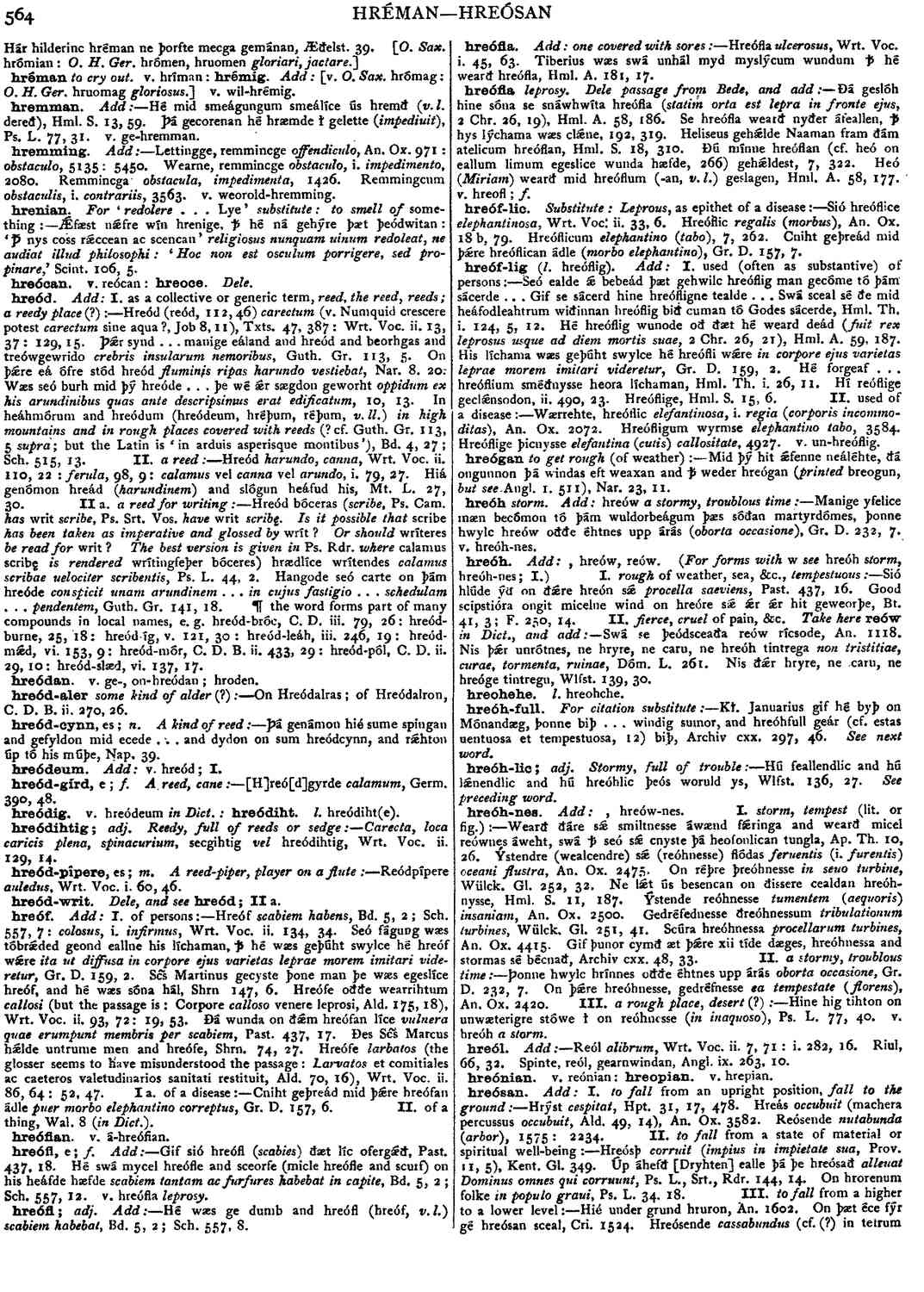hreód
-
Hreód (reód, 112, 46) carectum (v. Numquid crescere potest
carectum
sine aqua?, Job- 8, 11), Txts. 47, 387: Wrt. Voc. ii. 13, 37: 129, 15.
-
Þǽr synd . . . manige eáland and hreód and beorhgas and treówgewrido
crebris insularum nemoribus,
- Guth. Gr. 113, 5.
-
On þǽre eá ófre stód hreód
fluminis ripas harundo vestiebat,
- Nar. 8. 20.
-
Wæs seó burh mid þý hreóde . . . þe wé ǽr sægdon geworht
oppidum ex his arundinibus quas ante descripsimus erat edificatum,
- 10, 13.
-
In heáhmórum and hreódum (hreódeum, hréþum, réþum, v. ll.) in high mountains and in rough places covered with reeds (? cf. Guth. Gr. 113, 5
supra;
but the Latin is 'in arduis asperisque montibus'),- Bd. 4, 27; Sch. 515, 13.
-
Hreód harundo, canna, Wrt. Voc. ii. 110, 22: ferula, 98, 9: calamus vel canna vel
arundo,
i.- 79, 27.
-
Hiá genómon hreád (harundinem) and slógun heáfud his, Mt. L. 27, 30. II a. a reed for writing :-- Hreód bóceras (scribe, Ps. Cam. has writ scribe, Ps. Srt. Vos. have writ scribę. Is it possible that scribe has been taken as imperative and glossed by wrít? Or should wríteres be read for writ? The best version is given in Ps. Rdr. where calamus scribę, is rendered wrítingfeþer bóceres) hrædlíce wrítendes
calamus scribae uelociter scribentis,
- Ps. L. 44, 2.
-
Hangode seó carte on þám hreóde
conspicit unam arundinem . . . in cujus fastigio . . . schedulam . . . pendentem,
- Guth. Gr. 141, 18. ¶
Bosworth, Joseph. “hreód.” In An Anglo-Saxon Dictionary Online, edited by Thomas Northcote Toller, Christ Sean, and Ondřej Tichy. Prague: Faculty of Arts, Charles University, 2014. https://bosworthtoller.com/53143.
Checked: 0